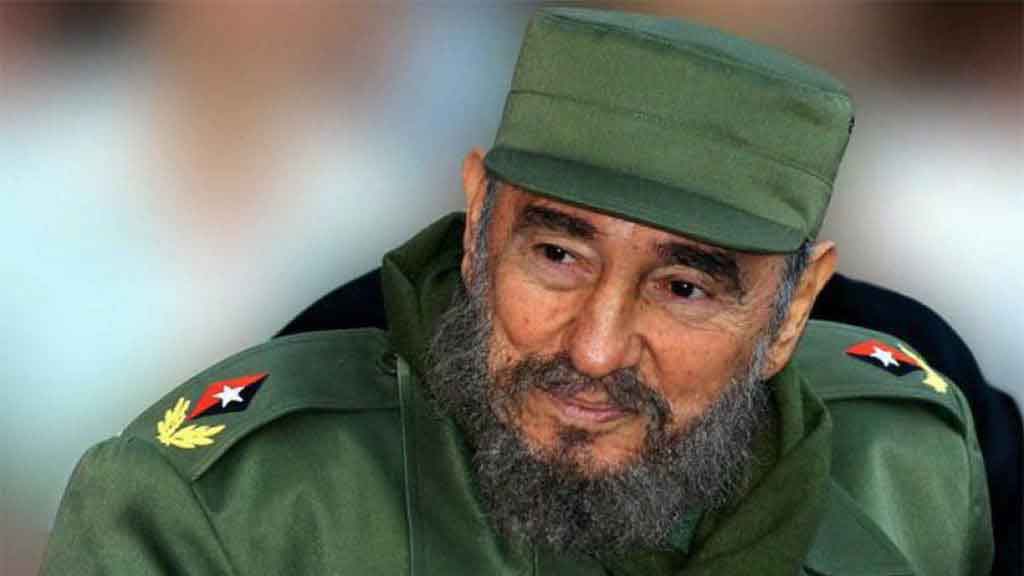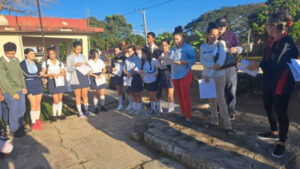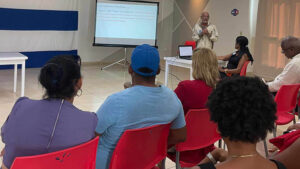Several voices on the island and in the world today evoke the political, moral and human stature of the historic leader of the Cuban Revolution, Fidel Castro, on the occasion of the 98th anniversary of his birth.
His legacy of sovereignty and emancipation has been highlighted since previous days, whether in public squares, labour collectives, educational establishments or solidarity groups inside or outside the Caribbean country.
Fidel Castro became a living legend after his triumphant arrival in Havana on 8 January 1959, at the head of the guerrillas who defeated the regime of Fulgencio Batista (1952-1958). With his thought and work, this revolutionary process transcended the borders of the Cuban nation.
The genius and political sagacity of the leader contributed to this, as he was the backbone of the unity of the people in the face of the permanent hostility of successive US administrations which, in retaliation, have since then applied an iron blockade to the island.
The world recognises the Cuban military strategist against the bandits in the Escambray Mountains (centre), the mercenary aggressors at Playa Girón (Bay of Pigs, 1961), and during the October Crisis, or Missile Crisis, in 1962.
Despite the policy of economic asphyxiation, political pressures, as well as numerous assassination attempts, the leader of the Cuban Revolution preserved national sovereignty and independence, and instituted social benefits that are today unattainable for many nations in the world.
The island’s dignitary drove the revolutionary process forward and charted the course towards socialism, consolidated economic progress, social justice, and the development of education, health, sport, culture and science, among other areas.
Thus, Fidel Castro’s Cuba became a paradigm for Latin American revolutionaries and progressive movements in various parts of the world, who relied on his vocation for solidarity, Latin Americanism and Third Worldism to achieve independence in their countries.
The Cuban statesman’s contributions to the strengthening of left-wing forces in Latin America and the rest of the world are widely documented, and Cuba’s contribution – with Fidel Castro at the helm – to the anti-colonialist struggles in Africa, to the defeat of apartheid in South Africa, and to the unity of poor nations is epic.
The commander-in-chief, described by his brother and comrade-in-arms, Army General Raúl Castro, as «the most illustrious son of Cuba in the 20th century», stands out for his ability to turn setbacks into victory, his firmness of ideals and his certainty in the triumph of just causes.
The physical existence of Fidel Castro (Birán, Holguín, 13 August 1926 – Havana, Cuba, 25 November 2016), was marked by transcendental events for the island; among them, the preparation and consummation of the assaults on the Moncada Barracks in Santiago de Cuba and the Carlos Manuel de Céspedes Barracks in Bayamo.
His historic self-defence before the court that tried him, where he delivered the plea known as La historia me absolverá (History will absolve me), which sketched out the programme of the future Revolution in Cuba, is also part of this context.
Likewise, his 15-year prison sentence, his subsequent amnesty in 1955, his exile in Mexico, and his arrival with his brothers in struggle on the eastern shores of the island on 2 December 1956, stand out as episodes in the life and actions of the inescapable Fidel Castro for Cuba and the world.




